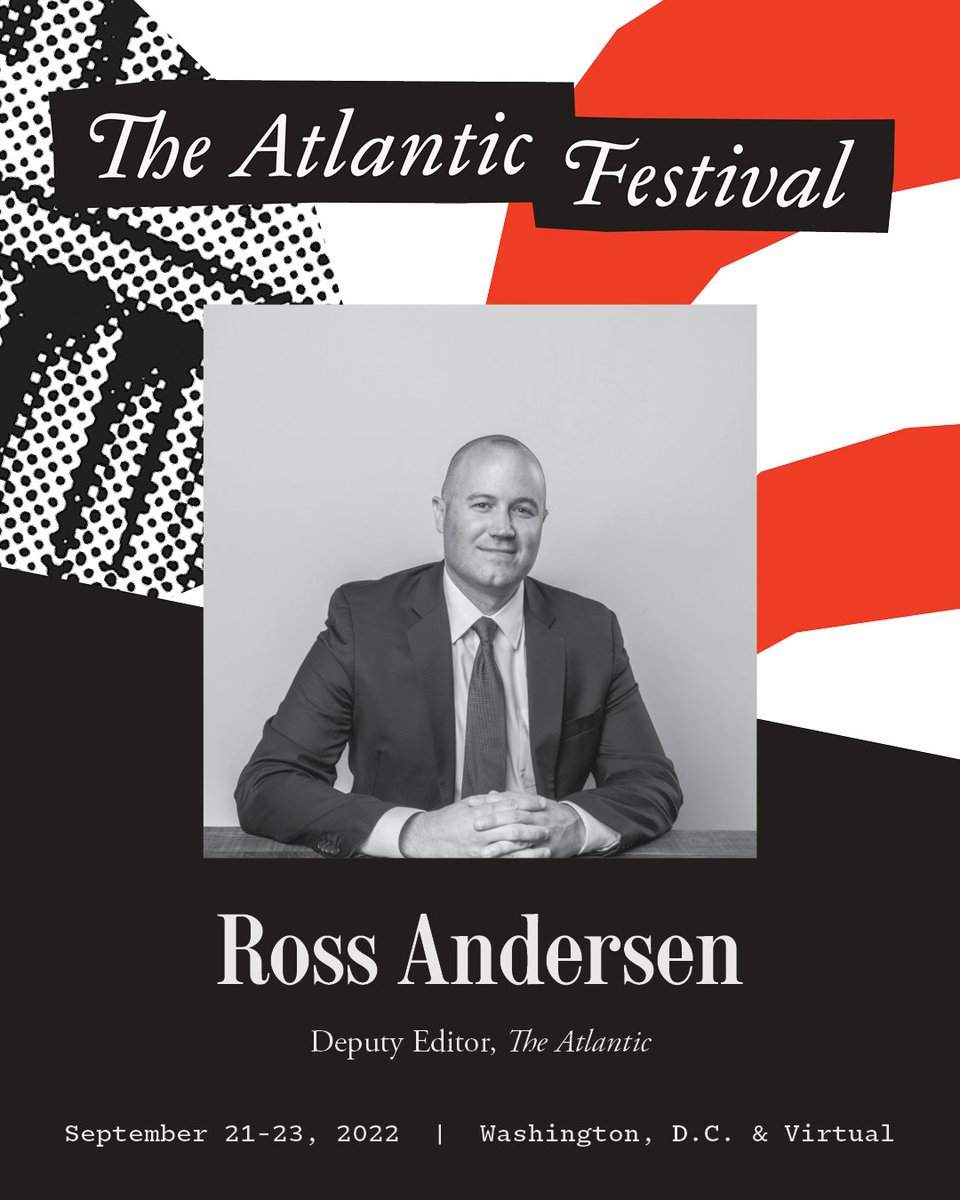
1/ Tomorrow we're kicking off #TAF22 at @TheWharfDC! There's still time to grab your virtual pass to watch livestreamed conversations. Here’s a preview of what to expect from our in-person and virtual lineups: TheAtlanticFestival.com 

2/ On Wednesday, @andersen will speak with Dr. Anthony Fauci to discuss his life, legacy, and what's next after government service. Tune in: on.theatln.tc/BYlLEtW 



3/ Then, @edyong209 will sit down with @syramadad of @NYCHealthSystem and author @DavidQuammen to discuss lessons from the coronavirus pandemic, and @jemelehill will discuss America after Roe with Planned Parenthood’s @AlexisMcGill. Tune in: on.theatln.tc/Zfji80o
4/ This week is also #BannedBooksWeek. On Thursday, join @DrIbram and @getnicced for a discussion about the censorship of their books and its larger implications. 



5/ Then, The Atlantic’s @JeffreyGoldberg will speak with Treasury Secretary Janet Yellen about the current state of the U.S. economy. Tune in: on.theatln.tc/YYFuUIR 



6/ Also, The Atlantic’s @katejulian will join @theelysemyers, @jean_twenge, and @ElsaAngel19 for a discussion on social media’s impact on mental health and what it means for the next generation. on.theatln.tc/YYFuUIR
7/ On Friday, Atlantic journalists @anneapplebaum, @FranklinFoer, and George Packer will take the stage with @NewsHour's @JudyWoodruff to discuss the latest on the war in Ukraine and the related national-security concerns.
8/ You can still get your #TAF22 tickets. Ideas Stage sessions will stream 2:30–4:30 p.m. ET each day and in-person sessions will be available to watch on-demand the following day. Find out more at TheAtlanticFestival.com
• • •
Missing some Tweet in this thread? You can try to
force a refresh












